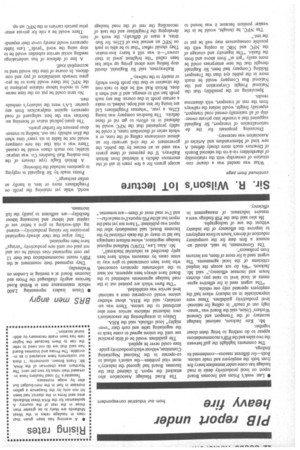PIB report under heavy fire from our industrial correspondent
Page 24

If you've noticed an error in this article please click here to report it so we can fix it.
• Last week's Prices and Incomes Board report on local productivity deals in toad haulage has come under immediate heavy fire from both the employers and trade unions. Both—for different reasons—condemned its findings.
The comments highlight the gulf between the two sides and the PIB's recommendations appear to do nothing to bring them closer together.
Mr. Ken Jackson, national haulage secretary of the Transport and General Workers' Union, said the Board was "amazingly out of touch" in calling for nationallevel productivity guidelines. These were impracticable in an industry where half the employers operated only one vehicle.
"The urgent need is for effective agreements at local level to raise pay, shorten hours and increase efficiency," said Mr. Jackson. "We do not accept the implied criticisms of the local agreements. The urgent need is for more of them, not lectures from professors".
The Government, he said, should announce a firm date for the compulsory reduction of drivers' hours to force employers to improve the efficiency of the industry without the use of tachographs.
He also said that the PIB findings were a massive indictment of management inefficiency. The Road Haulage Association also attacked the report. It claimed that the Incomes Board had ignored the industry's most vital problem—the union's refusal to co-operate in the National Negotiating Committee, without which productivity guidelines could never be applied.
The guidelines would be of little practical use until the unions agreed to come back to the negotiating table and curb their "overmighty" local officials, said the RHA.
Delays in strengthening the association's own industrial relations service were also attributed to the unions. There was uncertainty, said the RHA, about whether unions would co-operate once a nationallevel service was established.
"The flaws which are pointed out in the road haulage agreements submitted to the Board have always been apparent, not least to the unfortunate operators concerned, who have been constrained to give way in some cases by measures which have been aptly described as industrial blackmail".
Mr. Alan Law, TGWU Midland regional haulage negotiator, whose militant campaign has led to many of the deals criticized by the Incomes Board, said immediately after the report was published: "I have not yet read the report but all the PIE reports I've read so far— and I've read most of them—are nonsense."












































































































